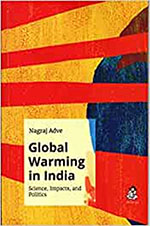EDIT: NOTE Dated 27.11.2024:
I now find my comments below, written with little understanding of Carnap, to be confused and foolish. I probably did not even grasp the important shift in second sentence of Para-1 of my comments of Carnap’s reliance on “the logic” to tolerance. I am in agreement with most of what Cohen and Marschall say in their paper wholeheartedly, while noting that what they say is not novel anymore but the application of the Carnapian value-based critique to contemporary issue is quite interesting. Where I might have some disagreement has to do their treatment of the notion of internal-external questions.
____________________________________________________
Cohen, W.A; Marschall, B. Would Carnap have tolerated modern metaphysics? The Monist, 106 (2023), pp 326-341.
The paper describes two phases of Carnap’s criticism of “metaphysics”. The first meaning-theoretic critique rested on the inability of certain natural language grammatical forms to correctly map to the logical forms (for example where the logical form ¬∃(x)R(x) can be in the natural language grammatical form R(x).) Then such natural language statements are meaningless. The second “value-based” phase, forced by the appearance of certain logical languages that could in fact map many such grammatical forms, was based on the “principle of tolerance” for all such logical languages but demanded that they clearly state their syntactic rules and that frameworks be valuable for practical inquiry. Those frameworks or languages that do not state their syntactic rules clearly or whose value is dubious are to be less valued and possibly meaningless.
The §4 seems to be wrong (at least quite weak) in its emphasis on the value being based on practical scientific considerations. I believe this is due to a reading of the tolerance principle devoid of its general thesis. The principle was a special case for the foundations of mathematics program of his ontological neutrality. While talking of Aufbau he summed up the attitude as “my attitude was again ontologically neutral. For me, it was simply a methodological question of choosing the most suitable basis for the system to be constructed, either a phenomenalistic or a physicalistic basis. The ontological theses of the traditional doctrines of either phenomenalism or materialism remained for me entirely out of consideration… in the Aufbau I merely refrained from taking sides; I added that, if one proceeds from the discussion of language forms to that of the corresponding metaphysical theses about the reality or unreality of some kind of entities, he steps beyond the bounds of science.” There can be no metaphysics beyond the bounds of sciences, ontological questions are to be answered by our best theories and only meaningful questions are of methodology and epistemology not ontology.
This principle can possibly be used to test whether Carnap would have tolerated contemporary mereology or not. My own partially articulated opinion is that the problem of meaningless metaphysics can be best understood through informal logic principle of sense-domains consistency1. Asking whether a discussion is within a single sense-domain or not. Where a sense-domain is the sets of predicates and constants that are implied by using the particular term in a particular sense (either one of several possible natural language senses or any theoretic sense). If the discussion switches domains without clarification or uses predicates and constants inconsistent with the sense in that particular domain then the discussion risks becoming non-sense. One assumption in this theory is that there is no sense of the terms in isolation that are also not natural language commonsense.
Perhaps what I am getting at through sense-domain principle is only a way of avoiding semantic ambiguities. Similarly, there are ways of avoiding syntactic ambiguities in natural languages. But maybe what some people assume Carnap to be saying is that certain kinds of inquiries are necessarily ambiguous because they are contentless or/and meaningless. And this can somehow be shown by logical or epistemic analysis. But both the critiques Carnap offered were inquiry general. His later criticism of ontology was perpahs methodological and based on the value and success of non-ontological inquiries and the fruitlessness of ontological ones.
1This is not a “theory” in naturalistic sense because argumentation and language-use for inquiry is a human action and without a theory of human action a theory of argumentation in this sense is impossible. But to the extent the goals and intention of the person engaged in argumentation is insight though clear exchange then some principles for clear discussions can be sketched out. Sense-domain principle being one such proposal.



